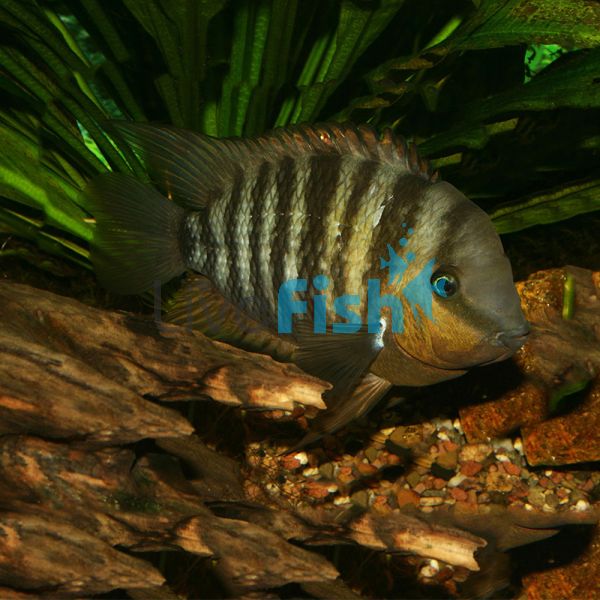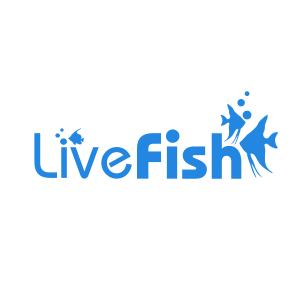Cichlasoma Blue-Eye 5cm
Blue-eye cichlids are a relatively new entry into the Australian aquarium hobby, only recently rising in popularity. These are actually close cousins of the convict cichlid but they arguably have a better range of colours and temperament as well. The blue eye cichlids make for a great breeding project because of how easy they spawn in captivity. They should also be easier fish to move on than more common South American breeders like convicts because of the lack of availability for this species. This species will also be stunning when kept as a pair in a species-only system to really show their lifecycle in a wild-looking environment.
Blue-Eye Cichilasoma Cichlid
Blue-eye cichlids are a relatively new entry into the Australian aquarium hobby, only recently rising in popularity. These are actually close cousins of the convict cichlid but they arguably have a better range of colours and temperament as well. The blue-eyed cichlids make for a great breeding project because of how easy they spawn in captivity. They should also be easier fish to move on than more common South American breeders like convicts because of the lack of availability for this species. This species will also be stunning when kept as a pair in a species-only system to really show their lifecycle in a wild-looking environment.
Colouration wise the blue eye cichlid has its own unique vibrancy. Though they don’t have bright colours, the earthy palette of light brown base colour and darker brown stripes is really nice. There are also red almost terracotta shades on the cheeks and fins along with the powder blue eye makes for a stunning fish. The blue eye cichlids only reach a maximum size of 10 cm, they also have an oval body shape much like convict cichlids. Because of their size, the blue-eye cichlid is a great fish for smaller-sized tanks and a perfect entry-level cichlid to experience before moving on to larger species.
Breeding blue-eye cichlids are quite easy in captivity. Much like the convict cichlid that is renowned for how frequently it breeds, as long as these blue eye cichlids are purchased in a small group, they will inevitably pair up. Males will tend to be larger than females in size whilst sporting brighter colours and having longer dorsal fins compared to females. Once a pair is formed, they will clean out a smooth surface in the aquarium to lay eggs on and guard the fry once they hatch. These fish are naturally from South America.
Tank Recommendations for your Blue-Eye Cichlid
A pair of blue-eye cichlids will be fine in a 150-litre aquarium however a group would thrive in a tank of 450 litres. Blue-eye cichlids have the tendency to dig in the substrate so soft-stem or shallow-root plants should be avoided. They can be kept with species like Java fern with no issues though. The ideal tank set-up would consist of sand or small grain gravel substrate and a range of rock or driftwood structures. This can diffuse the potential territorial behaviour these fish have.
Suitable Tank Buddies
Blue-eye cichlids are relatively peaceful however they should not be kept with any slow-moving or small fish. The general rule of thumb would be to avoid anything that can fit in the blue-eye cichlid mouth. Aside from this, these fish are pretty tolerant of other tank mates.
Usually Compatible
Black widow tetras, red eye tetras, places, plecos, angelfish, severum, uaru, rams, giant danios, and other large peaceful species.
Sometimes Compatible
Leopard danios, corydoras, Apistogramma, and any other small or bottom-dwelling species that could seem like a territorial threat to the blue-eye cichlids.
Rarely Compatible
aggressive species such as dovii and any nano species like neon tetras and shrimp.
Feeding your Blue-Eye Cichlid
Blue-eye cichlids will be easy fish to feed. As they are mostly bottom-dwelling, it is best to give them sinking pellets and frozen foods. Giving them a wide range of foods will condition the females to breed swiftly, this can also be enhanced through the feeding of live foods like black worms or brine shrimp.
| Scientific Name | Cryptoheros spilurus |
|---|---|
| Care Level | Moderate |
| Common Names | Blue-Eye Cichlid |
| Diet | Omnivore |
| Fish Family | Cichlidae |
| Lifespan (years) | 10 |
| Max. Length (cm) | 10 |
| Min. Tank Volume (l) | 150 Liters |
| Origin | South America |
| Reef Safe | Yes |
| Sociability | Peaceful |
| Venomous | No |
| Water Conditions | 24-28° C, pH 6.0-7.0 |




